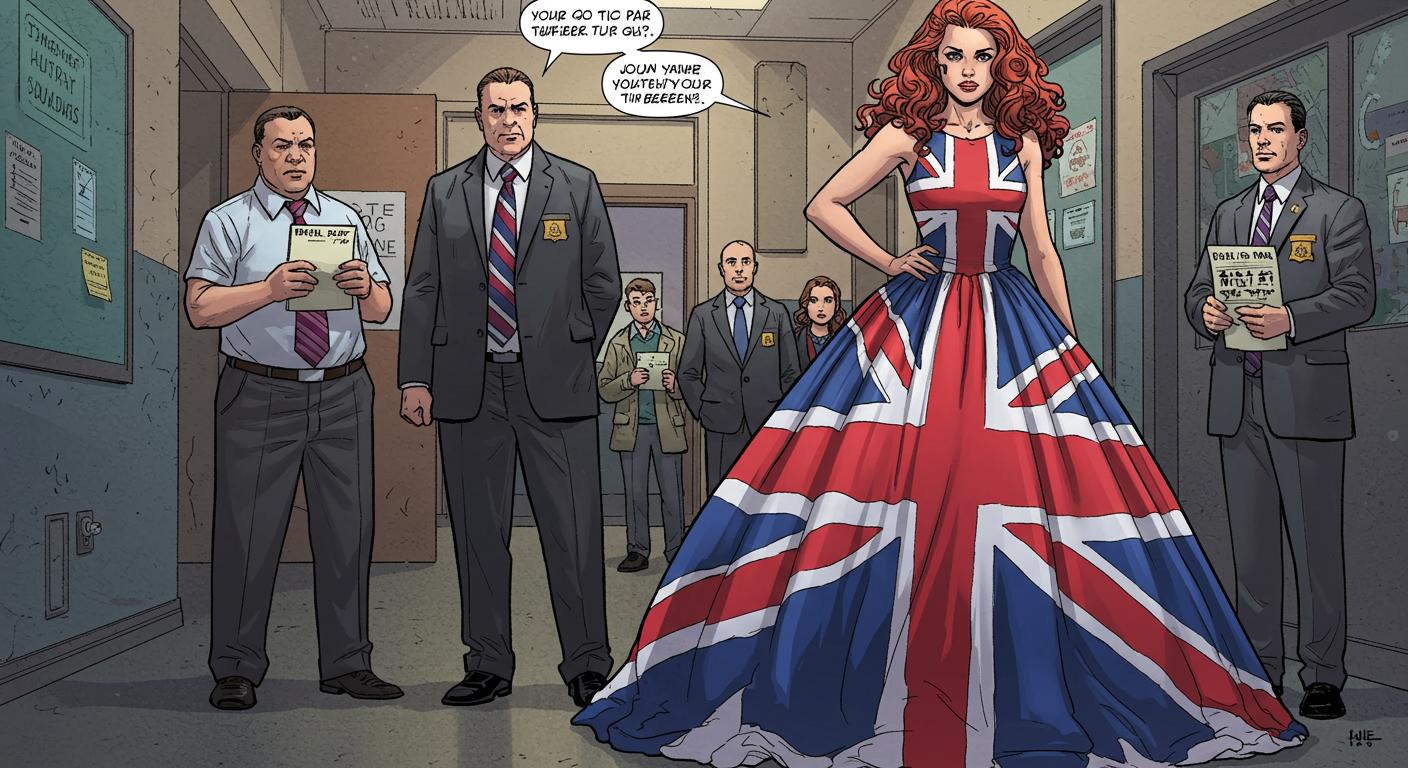Every now and then, an institution’s attempt at celebrating diversity ends up revealing how uncomfortably tangled our ideas about identity and belonging have become. Bilton School’s recent “Culture Day,” as detailed by WarwickshireWorld and echoed in GB News, managed to host such an irony-laden performance that it’s almost dizzying. Who knew that trying to symbolize inclusion could land you squarely in the land of, well, exclusion?
Dress For (Somebody Else’s) Success
The premise appeared simple enough: students were encouraged to attend in attire representing their nationality or family heritage, and share something meaningful about their background. As WarwickshireWorld explains, 12-year-old Courtney Wright, described as a “Grade A student,” arrived on the big day dressed in a vibrant Union Flag outfit and armed with a heartfelt speech about British traditions. Her reflections—touching on topics like tea-drinking, British weather, Shakespeare, and that perennial favorite, fish and chips—resonated with a gentle call for equal recognition of all cultures.
Instead of applause or a certificate, though, Courtney was told to remain in the school’s reception area for the remainder of the event. Her father, Stuart, recounted in WarwickshireWorld that he was told by staff Courtney was excluded because, as someone with British heritage, she “gets to celebrate her culture every day.” Facebook posts cited by GB News reinforce this, showing Stuart expressing confusion and disappointment as he wrote, “She has been told it’s not for her as she gets to celebrate being British every day.” For an event explicitly organized to promote inclusion and understanding among varied backgrounds, as the school outlined in its permission letter to parents, the decision presents a paradox almost too on-the-nose.
GB News corroborates this timeline and expands on the rationale, noting teachers told Courtney that Culture Day “was not for her.” The outlet also reports that pupils were actively encouraged to wear clothes reflecting their nationality, with speeches about heritage suggested as a way to participate. This leaves one wondering: was there a secret memo clarifying certain heritages need not apply?
Cultural Day, Minus the Culture (Of Some)
At the heart of this awkward episode is a question that Courtney herself anticipated. “But it can feel like being British doesn’t count as a culture, just because it’s the majority,” she wrote in her speech, a line quoted in both outlets. Her essay—thoughtful both in tone and content—makes the case that majority cultures too are a weaving of history, humor, and values, deserving of a seat at the same table.
School officials, according to WarwickshireWorld, intended the day to “promote inclusion, understanding, and appreciation of different backgrounds, traditions, and heritages.” Yet, as Stuart Wright highlighted in his remarks to reporters, the message felt sharply reversed: in attempting to uplift the underrepresented, the event wound up imposing a quiet ban on the most visible identity in the room.
It’s a peculiar twist that, in aiming for pluralism, institutions sometimes end up swapping one form of exclusion for another. If inclusion events draw a boundary around who gets to be included, what exactly is being celebrated? Is Britishness too familiar to count, or just too convenient an absence to question?
Aftermath and (Yet Another) Apology
Following considerable local outcry, Bilton School reversed course. Stowe Valley Trust, the academy organization running the school, issued what both WarwickshireWorld and GB News describe as an “unreserved apology” to Courtney and her family, expressing regret for the distress caused. “We are proud of the diversity of our students and the rich heritage they bring to our community,” a spokesperson told WarwickshireWorld, adding that the school is now “reviewing our policies and strengthening staff training” to ensure no pupil feels left out when expressing pride in their background.
As previously reported in GB News, conversations with Courtney and her family were held to better understand their concerns, signaling a commitment—at least in policy—to avoid such blunders in the future. The academy trust’s statement, cited in both sources, emphasizes their desire to create an environment where “every student feels recognised and supported when expressing pride in their heritage.”
But administrative apologies, no matter how sincerely worded, don’t quite erase the underlying contradiction at play. Did no one pause during the planning phase to consider that excluding a student for celebrating her own background—exactly as instructed—might undercut the entire initiative? The incident offers an object lesson in how easily well-meaning rules can trap us in unexpected corners.
The Perils of Well-Intentioned Irony
Granted, school administrators often juggle a daunting balance of inclusivity, representation, and sensitivity. Yet, there’s a particular irony in designing a day that invites students to publicly share their cultural identity, then drawing the line at the majority. As outlined in WarwickshireWorld’s report, Courtney’s exclusion wasn’t just a misinterpretation of the day’s spirit—it was a public rebuke of the very heritage the school otherwise claims is interwoven in its community life.
It’s not that celebrating underrepresented identities shouldn’t be central to these events—they absolutely should. It’s the additional layer of gatekeeping, where someone checks your cultural credentials before letting you join the celebration, that feels so profoundly odd. Are we now meant to rotate eligibility, or keep a tally of whose culture is due for recognition? Or does a genuinely inclusive event mean, brave thought, everyone is welcome without hesitation?
Courtney, for her part, said it directly: “Culture should be for everyone.” In an age of ever-narrower definitions, the wisdom of a 12-year-old might be the most radical—and necessary—reminder of all.







